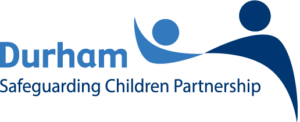When we think of the word relationship, often we think of a romantic partner. But a relationship isn’t just about romance.
You can have a relationship with:
- your parents – maternal, paternal and parental love
- your friends – friendship and platonic love
- your siblings – platonic and family love
- your family – platonic and family love
- a partner – romantic love
- yourself – self worth
Everyone deserves love, no matter what type it is.
Top tips
If you don’t read anything else, read this.
Know the law and your rights
- The law states that you have to be 16 to consent to sex.
- From 13 you are able to get free condoms and safe sex information.
- You have a right to say NO to anything you don’t consent to.
Talk, report, support
- Talk to someone that you trust, be brave.
- Report anything that isn’t right, be fearless.
- Support yourself and others in hard situations, be kind!
Know the signs
- Know what abuse is to help stop the cycle.
- Encourage open conversation and stop the stigma.
- Check out Alice Ruggles’ story.
Stay safe out and about
- Ask for Angela in pubs and bar
- Ask for Ani at your local pharmacy
- #SignalForHelp
Make time for you
- Keep yourself mentally well
- Know you’re worth it and you have a choice!
- It’s okay to take time out for you.
Protect yourself – recognising bad relationships
Abuse in a relationship can happen in lots of different ways and in different situations. People of any gender can abuse their partners in a relationship. You don’t even need to be an ‘official’ couple for a relationship to be abusive.
Visit the CEOP Relationships web page to find out how to spot signs of danger in different kinds of relationships such as sending nudes and ‘Catfishing‘.
Positive relations
You can find a lot more about relationships in the Positive Relations booklet.
This booklet has been co-produced with young people and all contents have been researched and edited by the young people involved. The themes that this booklet covers were identified as key topics that young people wish they had received more information on. Their aim was to collect information about positive relationships in one place as an introduction to key topics to help you understand what a positive relationship is. You may wish to follow the links included in this resource to do further reading and research.
The core audience is young people aged 13 and over but it may also be useful for parents, carers and professionals.
- Positive Relationships – IiC Positive Relationships Project (links version).pdf
- Positive Relationships – IiC Positive Relationships Project (print version).pdf
Please note that these documents are not produced by Durham County Council and may not be accessible. If you need an accessible version, please contact us.
